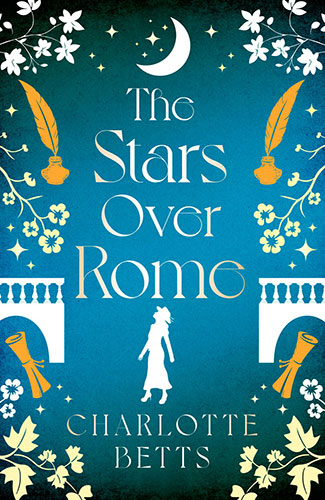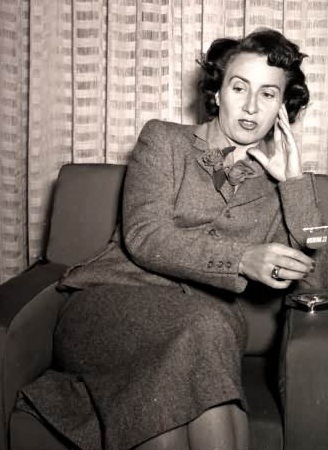In the early 1900s, Italian and British societies alike imposed strict limitations on women’s roles, particularly in the public and professional spheres. Gabriella Santorelli, my fictional heroine of The Stars Over Rome, is the daughter of an English father and an Italian mother. She is brought up with the intellectual freedom of Edwardian London but, once transplanted as a young bride into the conservative landscape of pre-WWI Rome, her challenges become far greater.
Married into a wealthy and traditional Roman family who own and edit Il Nuovo Romano, a high-quality monthly periodical known for its political and cultural commentary, Gabriella is expected to fulfil the role of dutiful wife and mother. The idea of a woman taking a leadership role in journalism is met with suspicion, if not outright hostility. Her aspirations to write, edit, and eventually lead the publication are seen as unfeminine and disruptive to the natural order upheld by her husband’s family.
In 1915, Italy entered World War I on the side of the Allies after a long, and fraught, internal debate. The Italian population was split between interventionists, who believed Italy should take part in the war to reclaim territories from the Austro-Hungarian Empire, and neutralists, who favoured staying out of the conflict to preserve lives and avoid further instability. Among the most vocal interventionists was Benito Mussolini, who at the time was a socialist-turned-nationalist and a rising voice in the Italian press. He used his newspaper, Il Popolo d’Italia, to aggressively promote intervention, often supported by propaganda and emotional appeals to patriotism.
In The Stars Over Rome, when Gabriella’s husband is called up to fight at the front, she is left with the opportunity, and the burden, of continuing to publish Il Nuovo Romano. I thought it unrealistic that she would have sufficient experience to manage this entirely on her own. She’d previously benefited from a forward thinking husband who supported her and, later, a capable and experienced editor, Enrico Mazzoni.
Italy during wartime was a dangerous place for journalists. Strict government censorship was enforced under military law, particularly from 1915 onwards, limiting what could be published about the war’s realities. Any reporting that might demoralize the public or question the official line was suppressed. Propaganda dominated the media landscape, and the press was forced to promote national unity and support for the war effort. As a woman and a foreigner by birth, Gabriella’s position was precarious; any deviation from official policy could be interpreted not just as dissent, but as betrayal.
Despite the odds, real-life female pioneers emerged in Italy’s journalistic landscape during this time. Although she came to prominence later, one of the most remarkable was Camilla Cederna, credited with introducing investigative journalism to Italy.
Early predecessors like Matilde Serao, editor and founder of Il Giorno in Naples, were already carving out positions for women in Italian journalism in the pre-war and wartime years. Serao, though not a war correspondent, demonstrated that women could lead major publications with intellectual rigor and editorial command.
Another key figure was Anna Kuliscioff, a Russian born revolutionary and journalist who advocated for workers’ rights and women’s suffrage. Her writing often met with censorship and political backlash.
World War I created new opportunities for women in Italy. With men at the front, as in other war-torn countries, women entered the workforce in unprecedented numbers, taking on roles in factories, agriculture, administration, and even publishing. While often underpaid and undervalued, this shift disrupted traditional gender expectations. The sight of women contributing to the war effort domestically and professionally challenged prevailing notions of female fragility and dependence. Gabriella’s struggle to assume editorial control of her family’s periodical is emblematic of this broader transformation. She had to overcome not only familial resistance and societal bias but also navigate the legal and political constraints of a censored press.
By 1919, the war had ended, but the scars, both personal and national, remained. The changes brought by the war had stirred Italy’s social fabric. While the postwar years saw some retraction of women’s wartime gains, they also laid the groundwork for future reform. The image of the capable, working woman had been seeded in the national consciousness, and journalism, once a male bastion, had begun to crack open its doors.
Gabriella Santorelli’s fictional story reflects the courage of countless women who dared to claim space in public life at a time when silence was expected of them. Confined by societal expectations, these women were transformed by necessity and courage. As men marched to the frontlines, the domestic and professional voids they left behind became a battleground for female ambition and capability. This period marked the beginning of a slow but inexorable rise where the resilience and fortitude of women were tested and proven, shaping a new narrative for future generations.
The Stars Over Rome
In a world where women are often overlooked, can Gabriella defy expectations and carve out a place for herself in a rapidly changing society?
Rome, 1913
To her mother’s dismay, Gabriella Hazelwood has no interest in marriage or a quiet domestic life – not when she has big dreams of becoming a journalist. But when she meets Marco Santorelli, a handsome newspaper heir who believes in her ambitions as much as she does, Gabriella begins to wonder if she can have both a husband and a career.
Under the magical stars of Rome, their connection deepens, and a sweeping love story begins . . . until the shadow of war casts a dark cloud over Europe.
When Marco is called to the front, and his family’s newspaper teeters on the brink of collapse, Gabriella steps in to help, only to face fierce resistance from those who believe a woman has no place in the newsroom. As she fights to prove herself, tradition and progress collide, loyalties are tested, and the devastating consequences of war jeopardises all that she holds close to her heart.
Buy here



